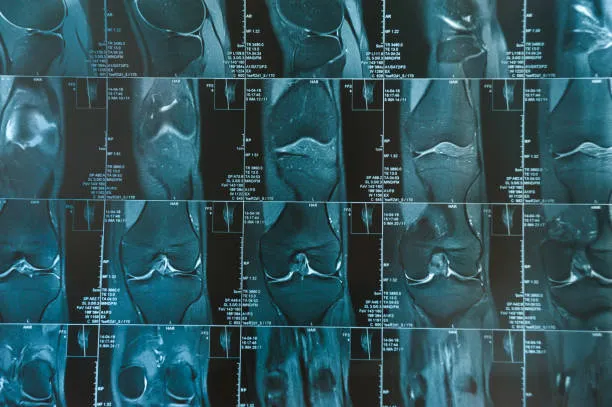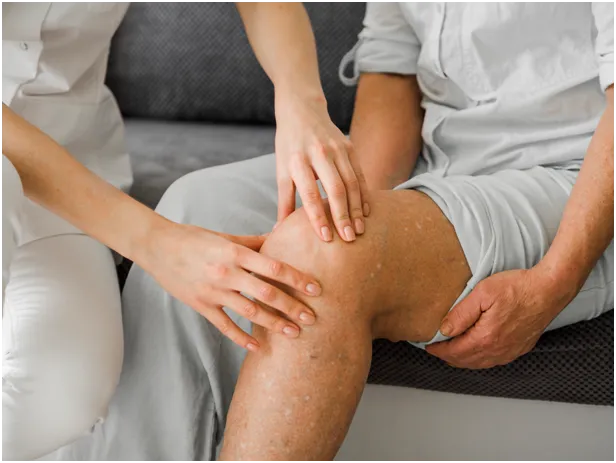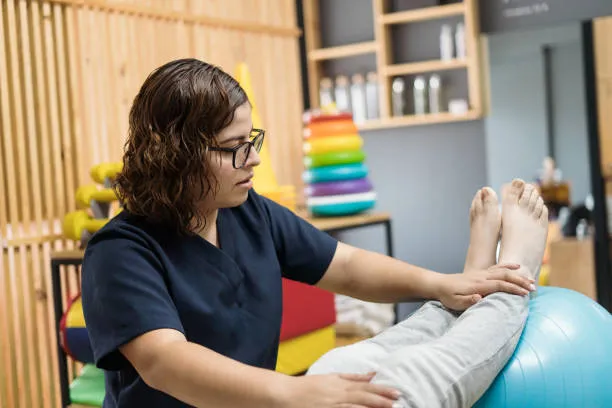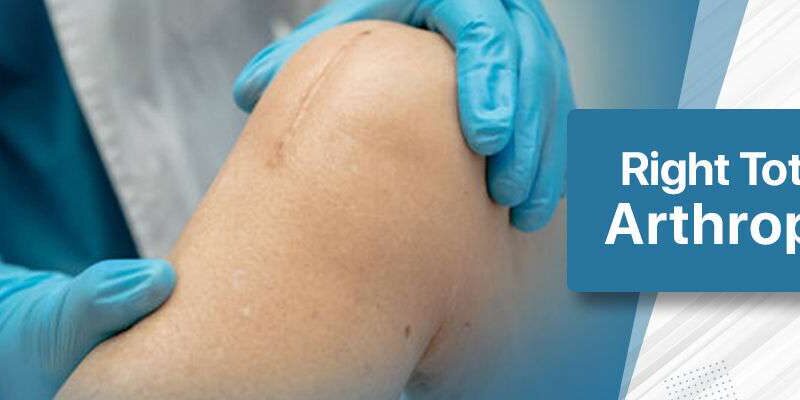Do you have severe pain and limited mobility in your right knee? Experience pain relief and improved mobility with right total knee arthroplasty by Dr. Sandeep Singh.
Right Total Knee Arthroplasty (TKA), commonly known as a total knee replacement, is a surgical procedure designed for individuals suffering from conditions like rheumatoid arthritis, advanced osteoarthritis, or traumatic injuries to the knee joint. These conditions can lead to the deterioration of the knee joint, resulting in severe distress, stiffness, and a significant reduction in the quality of life. Due to this discomfort, patients often experience limitations in their ability to walk, climb stairs, or engage in routine activities.
The primary reason for undergoing total knee arthroplasty is to alleviate acute knee pain and restore joint function. TKA is considered when conservative treatments, such as medications, physical therapy, lifestyle modifications, or assistive devices, fail to provide adequate relief. It involves the replacement of the damaged knee joint with an artificial implant made of metal and plastic components.
Say Goodbye To Knee Pain: Watch Dr. Sandeep Singh’s Comprehensive Total Knee Replacement Guide
“TKA provides a long-lasting solution by replacing the damaged joint surfaces with a prosthetic joint,” says Dr. Sandeep Singh, a renowned orthopedic doctor in Bhubaneswar. “It effectively restores the knee’s function and improves the patient’s quality of life.”
Pre-operative Preparations for Right Total Knee Arthroplasty

- Comprehensive medical evaluation, including blood tests, imaging scans, and an assessment of any underlying medical conditions that might affect the surgery.
- Review and potential adjustment or temporary stoppage of current medications, especially blood-thinning medications.
- Pre-operative physical therapy to strengthen knee muscles can aid in post-operative recovery.
- Smoking and alcohol cessation as these can hinder the healing process.
- Antibiotics may be administered before surgery to reduce the risk of infection.
- Home preparedness for a safe and comfortable recovery environment and making necessary modifications for easy mobility.
- Maintaining a healthy diet and staying well-hydrated for optimal healing.
- Patient education about the procedure, expected outcomes, potential risks, and the importance of following post-operative instructions.
- Discussion of anesthesia options.
- Establishing a reliable support system, including a caregiver or family member who can assist during the recovery period.
“Pre-operative preparations are essential to ensure that patients are physically and mentally ready for the surgery,” adds Dr. Sandeep Singh. “They enhance the chances of a successful Total Knee Replacement and a smoother recovery process.”
Dr. Singh is one of the leading orthopedic surgeons for people looking for a knee replacement doctor in Bhubaneswar.
Let us look at what the surgical procedure of total knee arthroplasty entails!
Surgical Procedure for Right Total Knee Arthroplasty
Step-by-step overview of the surgical procedure of Total Knee Arthroplasty (TKA):
- Anesthesia: The medical professional administers either general anesthesia to induce unconsciousness throughout the surgery or spinal anesthesia to numb the lower body while keeping the patient awake.
- Incision: A vertical or horizontal incision, typically about 8 to 10 inches long, is made over the knee joint to expose the damaged area.
- Bone Preparation: The doctor removes damaged cartilage and bone at the ends of the femur (thighbone) and tibia (shinbone). Special instruments are used to shape the bone to fit the prosthetic components precisely.
- Implant Placement: Prosthetic components, which may consist of metal and plastic parts, are securely attached to the prepared bone surfaces. These components mimic the natural knee joint.

- Patellar Resurfacing: In some cases, the undersurface of the kneecap (patella) may be resurfaced to ensure proper joint function.
- Joint Assessment: The surgeon assesses the joint’s mobility and stability, ensuring the prosthetic components are correctly aligned and functioning.
- Wound Closure: Once the components are in place, the surgeon closes the incision with sutures or staples.
- Dressing and Recovery: A sterile dressing is applied over the incision site, and the patient is taken to the recovery room.
- Post-op Care: Pain management is initiated after surgery, and physical therapy is introduced to aid in joint mobility and strength.
- Hospital Stay: The length of the hospital stay varies but typically ranges from 2 to 5 days, depending on the patient’s condition and the surgical approach.

Benefits of Right Total Knee Arthroplasty (TKR)
Post-operative Period Following Right Total Knee Arthroplasty
Recovery and Rehabilitation After Right Total Knee Arthroplasty

Returning to Normal Activities Post Right Total Knee Arthroplasty
The timeline for returning to normal activities varies but can take several weeks to months. Patients can resume low-impact activities first, gradually progressing to more strenuous ones. Full recovery and enjoying a pain-free life are the ultimate goals.
Conclusion

Are you facing joint problems? Do not delay.
Contact us to schedule an appointment with the highly-skilled orthopedic expert Dr. Sandeep Singh for safe and effective treatment options.
FAQs
What Is The Difference Between A Partial Knee Replacement And A Total Knee Replacement?
The key distinction lies in the extent of knee joint replacement. In partial knee replacement, only the damaged portion of the knee joint is replaced, preserving healthy bone and tissue. Total knee replacement, on the other hand, replaces the entire knee joint with an artificial implant. Treatment choice depends on the extent of joint damage and the patient’s specific condition.
What Is The Recovery Period For A Knee Replacement?
The recovery period for knee replacement varies from person to person. Generally, patients can expect a gradual recovery spanning several weeks to months. Early post-surgery, patients undergo physical therapy to regain mobility and strength. Full recovery can take several months, with some improvements continuing over a year. Adhering to post-operative instructions and regular follow-ups with healthcare providers are crucial for a successful recovery.

